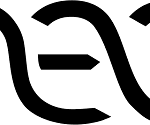. . . But Radically Orthodox or the “Radical Center” (+ My Own Views)
Charlie: It is the same when debating those of the far left on matters of politics. The arrogance is so intense with some of them that they think that anyone who isn’t convinced by their arguments must not understand them very well.
Scott W: Well there is that delaying tactic again: give your opponent homework assignments.
Hey Right-wing tool. Read Chomsky’s Deterring Democracy and then maybe we can talk.
Hey Papal Lackey. Read some obscure medieval popes and then we can talk.
Hey primitive theist. Read a bunch of pointy-headed professors, and then we can talk.
It’s like being invited to a pyramid-scheme meeting.
Randy: One thing that would help is to stop equating atheism with political liberalism. So many people feel that becoming Christian is to learn to think like George Bush. It is not helpful. Politically Pope Benedict is way left of any democrat. So was John Paul II. Read the USCCB documents. They are all left wing. Equating Christianity with your politics is creating extra obstacles for them to come to Christ. It is a big mistake of the Fundamentalists and we should not do the same thing. Debating religion is hard enough without dragging politics into it.
Hi Randy,
Neither Charlie nor Scott were doing that. Rather, they were comparing atheists and leftists in one respect: in how they argue their points in an unfair and objectionable manner. So it is incorrect to label what they did above as “equating atheism with political liberalism.” There are pro-life atheists (e.g., Nat Hentoff) and conservative and libertarian atheists, just as there are left-wing evangelicals (Sojourners, Ron Sider, Anthony Campolo, etc.).
I think the second fallacy in your remark is to assume that what the popes say is “leftist.” Political leftism or far left liberalism in politics is essentially (but not necessarily) a secular point of view, and confined to political matters only.
I would deny that recent popes are “politically left.” They are neither right nor left; they are radically Catholic, which transcends these political categories (just as doctrinal orthodoxy transcends the left-right mentality, which is why I oppose both theological liberalism and so-called “traditionalism”: considered to be on the “right”).
So again, the remarks you object to above did not make the equation of popes and the Church with “politically right” (though it might perhaps be argued that they implied this); whereas you seem to have made the equation of popes and the Church with “politically left.”
I think that is fundamentally wrongheaded. In my own political positions, e.g., hopefully guided by the Church, I take positions that do not fall into the normal dichotomies of American political discourse.
I oppose the dropping of nuclear bombs on Hiroshima and Nagasaki as immoral and indefensible (quite unpopular with many conservatives, as are all the following positions). I oppose the death penalty (excepting the most extreme cases, including terrorists), per John Paul II’s reasoning. I think America is the wickedest nation ever, by biblical standards, and that capitalism is an extremely (though not intrinsically) corrupt system, which fosters greed and an unhelpful materialism, oppose waterboarding as an abuse, and am a Chestertonian distributist. I also like the idea of socialized health care.
But I am pro-life, pro-family, oppose radical feminism and homosexual “marriage” and am often a hawk in military matters (all positions popular with political conservatives).
So that is seven positions considered “left” and five considered “right.” But the Church transcends these secular, civil political categories, just as (I believe) my own set of positions does.
Dave defended me well (thanks), but I just wanted to add (in case it was not obvious) that my examples were purely illustrative. I have been told by a dialog opponent to read Chomsky before he would accept or interact with my points, so it was a real-life anecdote which I suppose I should have mentioned for clarity. I could just as easily have said “Hey, left-wingnut. Read some Russel Kirk and then we can talk.” My objection was purely to the interaction dodge tactic of saying one’s opponent does not understand the issue, will not say why, and says one must study x, y, and z before they can comment intelligently on it. And I notice that same charge has come up again in the above combox.
Rather they were comparing atheists and leftists in one respect: in how they argue their points in an unfair and objectionable manner
This IS my point. To say leftists argue their point in an unfair an objectionable manner puts you way far right. Many people would take it as an admission you have ceased to think critically. Unless of course they were far right wing as well in which case they would just take it as an insult. In either case it does not help you.
I do agree that Catholics should be above political alliances. That is why making statments that will alienate the political left is very unwise. Many Fundamentalists try to make you a Christian and a Republican and not always in that order. We need to focus on faith and let them worry about how that should impact their politics later.
To say leftists argue their point in an unfair an objectionable manner puts you way far right.
That’s sheer nonsense. One can make such a generalization without having any particular political position. Indeed, a leftist himself could make such a point: that the way his colleagues argue their positions is often objectionable. A conservative could do the same thing on his side about his colleagues. You are thinking illogically.
Many people would take it as an admission you have ceased to think critically.
Rubbish; all this would prove is that they did exactly what they falsely accused me of and that they are using fallacious logic (usually, in these instances, based on irrational emotionalism).
None of us said that the entirety of the leftist argument is a bunch of lousy and illogical argumentation. The point was simply made that this often occurs. There is no grounds here at all to conclude that any of us “have ceased to think critically.” C’mon! You are falling into the same pattern that we have criticized. And moreover, you took what was a philosophical discussion, primarily about logic, and have made it political where it was not at all: only in a very limited analogical sense.
Unless of course they were far right wing as well in which case they would just take it as an insult.
What is “far right wing” anyway, and how is it relevant to this discussion? I have shown you (I can’t speak for the others) that my own political views can hardly even be classified as “right” in any conventional understanding of these things (nor can the Church’s, I have argued).
In either case it does not help you.
The observation made was a perfectly valid one, and I stand by it. It doesn’t prove in the slightest what you are contending.
I do agree that Catholics should be above political alliances. That is why making statments that will alienate the political left is very unwise.
We are fully justified in criticizing large-scale trends in how people of certain persuasions tend to argue things. For heaven’s sake, I’ve been arguing with liberals (both theological and political) for thirty years. I’ve contended with atheists and pro-aborts and radical homosexual activists, Marxists and feminists. I know how these people argue. And it is oftentimes exactly as it is portrayed above, in the disputed statements.
Now, having said that, this doesn’t imply in the least that those on the right do not have their own perhaps equally serious deficiencies in method and argument. But I’m not dealing with that. I am dealing with prevalent left wing methodology at the moment.
Many Fundamentalists try to make you a Christian and a Republican and not always in that order.
Case in point. That has never been my approach. I’ve never been an apologist for either the Republican Party or capitalism. But there are certain clear differences where the Republicans are clearly on the side of the angels, or far more so than the Democrats (e.g., abortion and homosexual so-called “marriage”), and (I would contend) how church and state are related.
We need to focus on faith and let them worry about how that should impact their politics later.
I agree. I deny that these comments made do otherwise. I think you’re being far too sensitive (I imagine because of your own political views, to whatever degree).
It seems Randy took the cue from the first comment, and perhaps my reference to Chomsky. To defend Charlie, he did qualify the Left with “far”. It is not controversial at all to suggest that as one gets to the extreme of the spectrum, Left OR Right, the logic gets muddled. I happen to be used to the absurd thinking from the far Left. I see plenty on the right such as at Mark Shea’s blog as certain folks exhibit some ghastly thinking in excusing torture.
You guys just don’t get it. By just mentioning “I happen to be used to the absurd thinking from the far Left” you get a reaction from someone who doesn’t think the left is absurd at all. You might think Chomsky is an idiot. Mentioning it in a debate like this will cause your opponent to put you in a box. It makes it much harder for them to credit anything you say.
You may try and split hairs and say you are just refering to arguing tactics but it is wishful thinking. People rarely ridicule arguments they agree with. They certainly don’t trot them out as negative parallels. They might point out a flaw here and there but they would never dismiss all the arguments as “absurd thinking” if they agreed with the conclusions.
So there is no absurd thinking at all on the Left? I conceded that bad thinking exists on both sides of the spectrum, and I am one to point it out wherever found. I only mention that out of experience, not as a generalization. Kinda like if a car mechanic said, “I am familiar with the bad design of the new Mustang.” He doesn’t necessaily mean Ford always makes a bad car.
You might think Chomsky is an idiot.
No. I don’t have to. Just like I don’t have to necessarily read him to be conversant on a particular topic.
Mentioning it in a debate like this will cause your opponent to put you in a box. It makes it much harder for them to credit anything you say.
This goes to my point – not interacting with the actual ideas in an argument and rather saying, “go read this.” It is the similar to the data-dump when someone posts reams of other people’s material as if it constitutes an argument.
Arguments are either valid or invalid regardless of the PR job we do on them. The question is whether someone’s bias or prejudices actually affect the logic itself. If it does, it shouldn’t be hard to dismantle their point. Many folk won’t do this because it requires work and would rather just cry foul when someone makes a generalization.
I don’t think it effects the logic itself but it does effect how likely you are to get them to see beyond any prejudices they may have. Most arguments about religion amount to getting people to see how their subconcious effects their thinking and causes them to see certain arguments as reasonable and others as not. This is not based on pure reason even though many people beleive it is for them. In reality it has a lot to do with tradition, painful experiences, sinful desires, etc. I believe if you can get past all that and get them to evaluate Catholicism based on pure reason it will be very appealing to them.
How do you do that? One way is to strip away anything that could trigger a negative response from their subconcious. It is not possible to do that completely but we should try and minimize it. Introducing political ideas that have a ton of baggage is the last thing you want to do.
He has said he can show how the Catholic doctrine of suffering is self contradictory. Make him show it. He can’t. So don’t give him a way out.
I stand by my original point – I did not equate atheism with liberalism and no one could resonably conclude that I did. I see no obligation to guess someone motives and tip-toe around prejudices that could easily be wholly imaginary.
And after further reflection I realized something. I asked myself what/who is the first thing I think of when I think of atheism. The answer I come up with is not left-wingers, but rght-wingers of the Ayn Rand/Objectivist sort. I think of Penn & Teller, who are right-wing (at least everything I have read or heard from them), or Richard Dawkins, whose political leanings I have no knowledge. So I am afraid this completely dismantles your point that I equate atheism with liberalism. Again I’l reiterate that it is about the ideas, and not the presuppositions which, as shown, can be so far off base that it is simply best to charge ahead and not worry about them.
I agree that Randy makes a good point vis-a-vis practical considerations. I was dealing with the logical aspect. But as a general rule, it is good to avoid controversial politics when discussing philosophical or theological issues. That I have no trouble with, and would agree that it is wise policy and strategy, so to speak.
Scott,
Good point. Most liberals I know believe in God. They are often theologically liberal (overlap). Atheists, on the other hand, quite often can fall into the objectivist / libertarian camp. I still stand by my point about disagreeable argumentative methods from the far left, but agree also that this is also true of the far right, or indeed, of anyone who doesn’t know how to argue properly, regardless of political persuasion.














